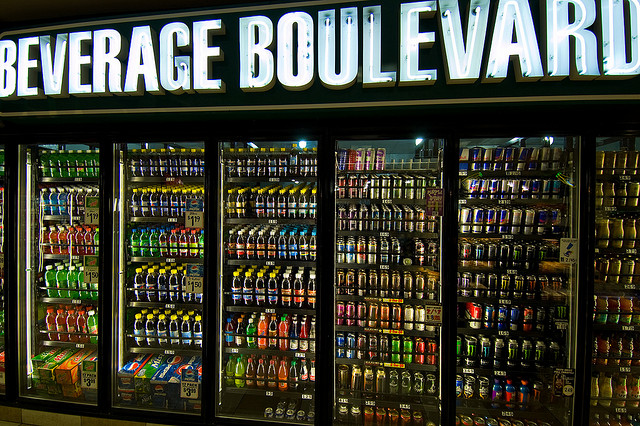Buy only what is necessary, not what is convenient. What is unnecessary, even if it costs one cent, it is expensive. – Seneca *

I just stepped in to pay for my gas, and suddenly I’m thirsty. Is it truly necessary or simply convenient?
What does that mean?
While widely attributed to Seneca, I couldn’t find it in his works. Either it’s a ‘traditional’ attribution, or a very freely translated phrase. In any case, I find it quite interesting.
The first part is fairly straight forward. It asks us to only buy what is necessary, not what is convenient. For anyone who stopped to get gas and grabbed something to drink or snack on while they were there, you know this, right?
The second half reminds us that if it is unnecessary, we are spending a limited resource on something we don’t need. The implication is that when we do need to get something, we may wind up a penny or two short, and that would be tragic.
Why is focusing on what is necessary important?
Like money, time is a precious commodity. If we put that into the quote, we are investing our time only in what is important, not just what is convenient. Any time we spend on unimportant things is time is time we will never get back, and that is the ultimate expense.
That doesn’t mean we can’t have some free time, some time to relax, but understand that the time we spend there is gone, and cannot be retrieved. To me, that doesn’t mean I don’t take time to relax and refresh myself, I just make sure when I get back to it, whatever ‘it’ might be, it is very important.
We can spend our time and our money any way we want. But always at a cost. The economists call it an opportunity cost. If we spend our money on one thing, we no longer have the money available to buy something else. The same goes for time. We only have so many hours in a week. How we spend ours is important.
By keeping to the things which are necessary and important, we can get a lot done and make sure both our dollars and our hours get as much done as possible. If we focus on what isn’t necessary, how do we get those dollars and hours back? You can’t, and that’s why it’s important to focus on what is necessary.
Where can I apply this in my life?
What will we have if we put the bulk of our time and our money into the things which are necessary? Compare that to putting the bulk of our time and money into things which are not necessary. Which life is more fun in the short run, and which life will be more fun in the long run, years from now?
Many people, myself included in my younger days, focus on what is convenient and what is available right now, and not stay focused on the longer term game. Yes, that bag of Oreo’s looks mighty tasty, and isn’t too much more expensive than at the grocery store. I could get it without using too much money or time, buying what was convenient. But it will take hundreds of push-ups to pay for those calories.
I was spending time and money on things which were not necessary (I can’t think of a time when Oreo’s would be a necessity, unless no other food was available to eat). That was money and time that was not available for other purposes. Even worse, I’d have to take additional time to exercise enough to burn off the unnecessary calories.
Take a moment and consider what you have spent your time and money on over the last week or two. Has all of it, or at least the great majority of it, gone to what was necessary, and rarely if ever gone to what was merely convenient or worse, what was unnecessary? Please allow yourself a little room for relaxing and recovering from a busy week.
How did that go? Did you see anything you might want to do a little differently this week, or next week? It might not seem easy, but if you consider what you will not be able to do later this month, this year, or this lifetime, perhaps you can find the strength to either not do it, or at least do less of it. Habits can be tough to break, but it can be done.
What other ways can you find to help you save yourself from temptation? Can you come up with something you really want to spend your time and money on that you could use to help you stay focused and motivated to only spend on what was actually necessary? Is there something you really want or something into which you really want to invest your time?
We all have a finite amount of time and money each week, each month, and each year. If we can stay focused on what is necessary, and avoid what is only convenient or unnecessary, we can amaze ourselves with how much time and money we can have.
This next week, try keeping track of what you are doing. Examine your life and track what was necessary, what was simply convenient, and what was unnecessary. See what you can do to trim what isn’t helping, so that you can choose to do more of what is truly important and necessary to you.
From: Twitter, @The_HeroicStoic
confirmed at : * Sadly, nowhere. Lots of ‘he said it’ but no actual source.
photo by Nate Grigg

Thanks for the reminder!
You are most welcome.